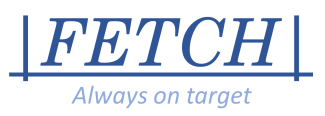FETCH
Metastatic prostate cancer patients receive hormonal treatment until therapy resistance occurs. When resistance occurs, up-to-date information on the tumours' target expression is necessary to select the best (targeted) treatment. Retrieving this information via biopsies is not feasible at this stage. Another way to obtain insight is through Circulating Tumour Cells (CTCs). CTCs can be detected in blood. Although research has shown their clinical relevance in patients with a high number of CTCs, in most metastatic cancer patients, not enough CTCs are found in a tube of blood to represent a biopsy, hampering their clinical use. Other liquid biopsy methods such as ctDNA or extracellular vesicles can be detected in higher quantities, but do not provide protein expression or lack specificity. To obtain more CTCs, a larger volume of blood should be screened. This can be achieved through leukapheresis, a standard medical procedure used to extract white blood cells (WBCs) from the entire blood volume. Besides WBCs, a full leukapheresis product also contains approximately 200 times the number of CTCs found in a tube of blood. However, existing CTC technologies can only detect and characterise CTCs from small portions of the leukapheresis material (~2%). This is due to the excessive number of WBCs that are co-captured and clump during the magnetic enrichment of CTCs, preventing tumour cell identification. FETCH innovated the immunomagnetic enrichment of CTCs from leukapheresis material, reducing the co-capture of WBCs and preventing cell clumping. This innovation enables the detection of CTCs and the analysis of metastatic target information from a patient’s entire blood volume. The patent-pending approach has already been validated in metastatic prostate cancer patients.
The University of Twente spin-off FETCH team consists of Michiel Stevens PhD, a biomedical engineer with > 10 years of experience in the commercial development of CTC isolation systems, Tom Niessink MSc, a bio-oriented hardware- and software engineer with >4 years of diagnostic equipment development experience, and Rui Neves PhD, an expert on the characterization of CTCs from the Medical University of Dusseldorf. Advice is provided by involved key KOLs, most importantly prof. Leon Terstappen, co-inventor and former CSO of the FDA-cleared CellSearch system for CTC detection, and prof. Nikolas Stoecklein, since 2011 the initiator of utilizing leukapheresis for CTC collection.
FETCH will offer its ability to detect tumour cells in the leukapheresis product as a service, with an initial focus on prostate cancer. Research using blood tube-collected CTCs has already proven that when sufficiently detected, CTCs are clinically relevant in this setting. The initial addressable market here consists of the 53-thousand prostate cancer patients per year (EU and US) who have become resistant to hormone therapy and will receive a second treatment line.
